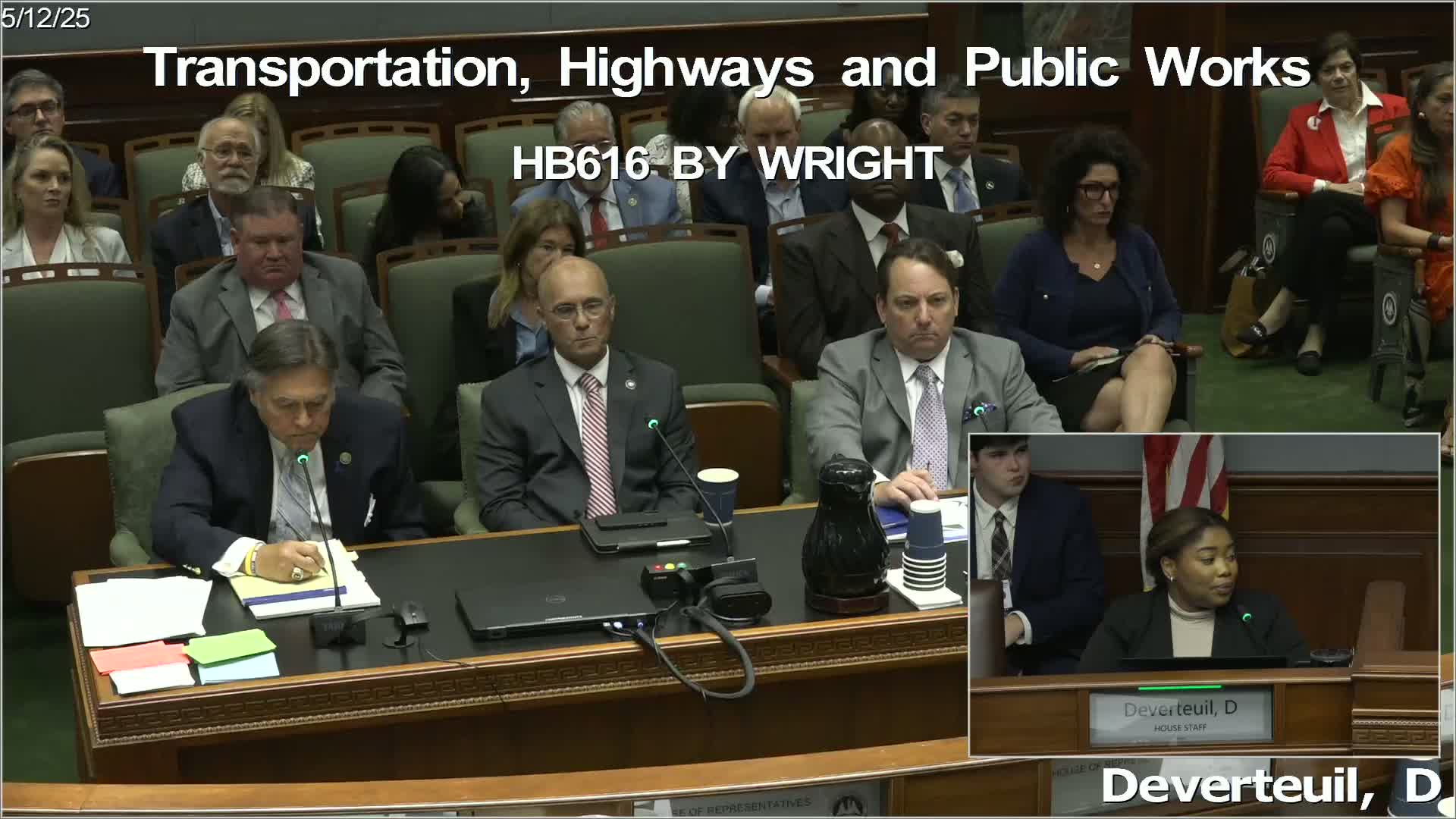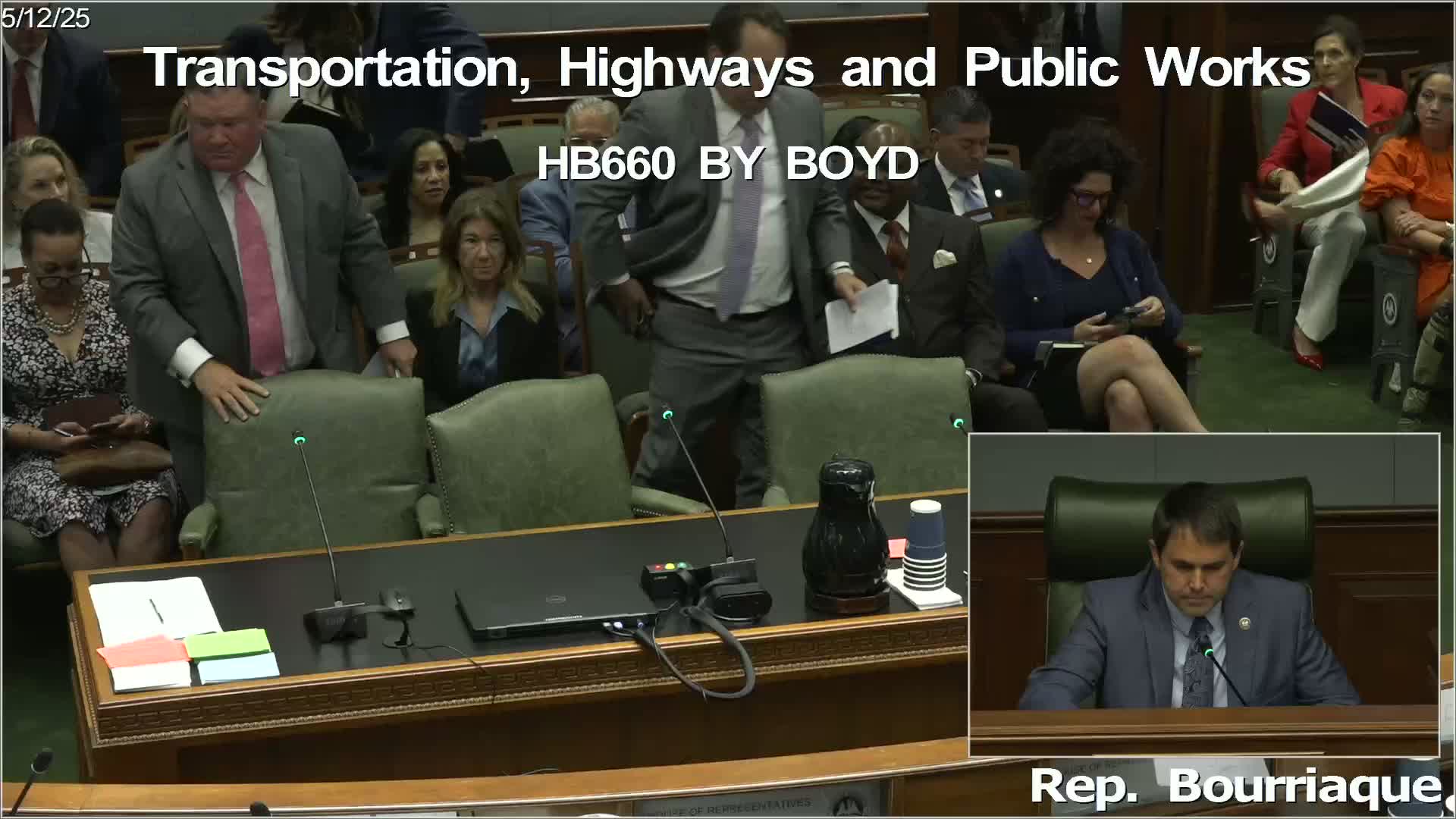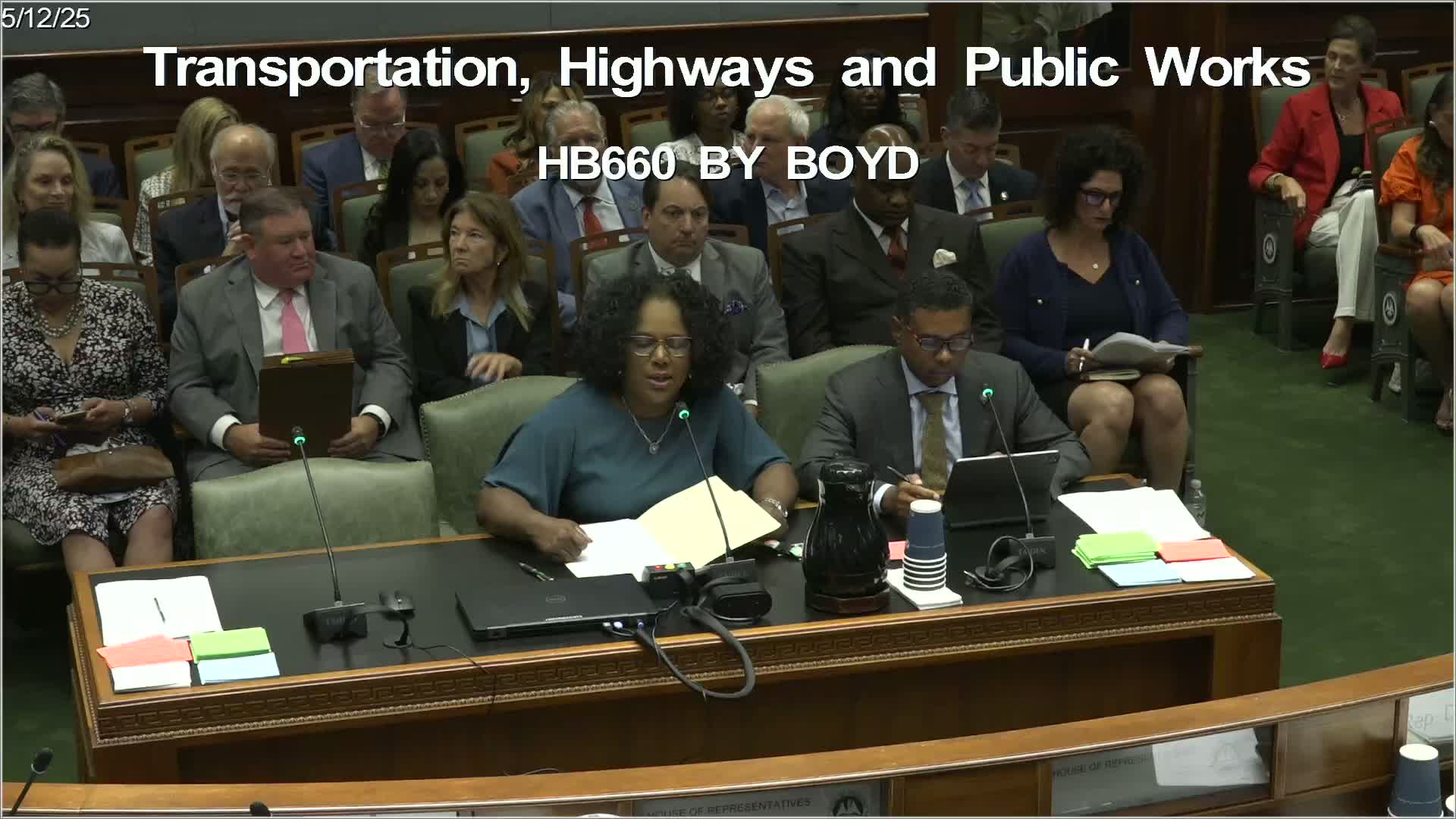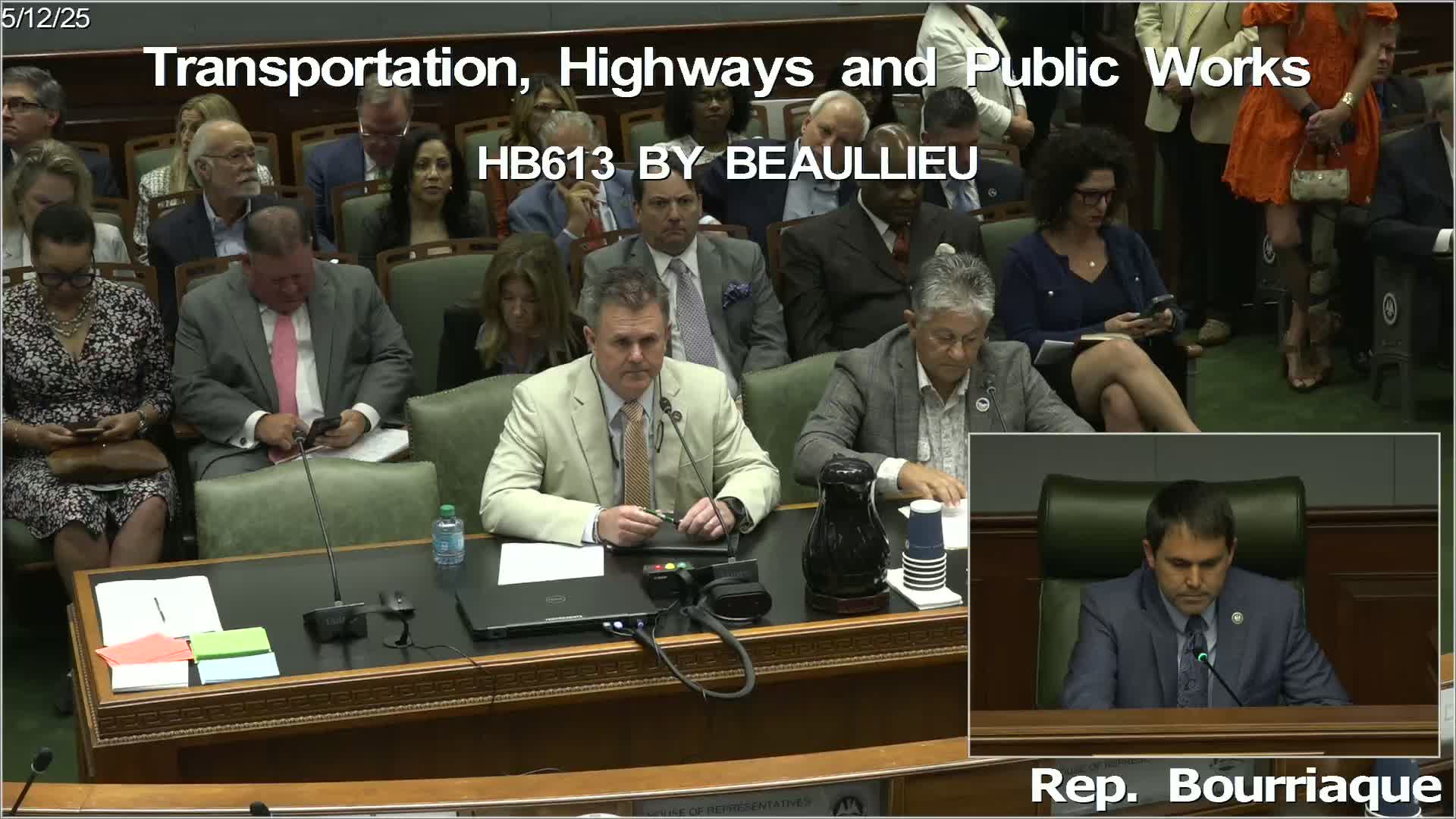Article not found
This article is no longer available. But don't worry—we've gathered other articles that discuss the same topic.

Committee adopts substitute to formalize nominating committee for New Orleans‑area flood protection authorities

House committee advances bill letting Port of New Orleans pursue P3 for Saint Bernard corridor

Committee supports raising trailer registration fees to boost rural road maintenance; fiscal note sends bill to appropriations

